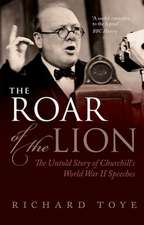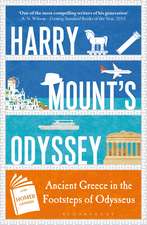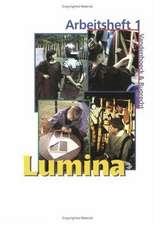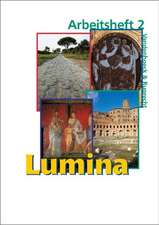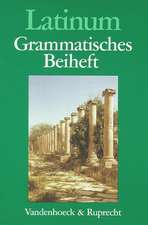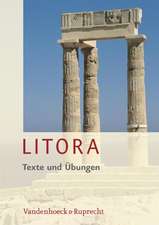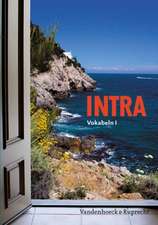Winston Churchill: Politics, Strategy and Statecraft
Editat de Richard Toyeen Limba Engleză Paperback – 11 ian 2017
| Toate formatele și edițiile | Preț | Express |
|---|---|---|
| Paperback (2) | 91.55 lei 11-16 zile | +34.36 lei 6-12 zile |
| OUP OXFORD – 25 noi 2021 | 91.55 lei 11-16 zile | +34.36 lei 6-12 zile |
| Bloomsbury Publishing – 11 ian 2017 | 179.10 lei 6-8 săpt. | |
| Hardback (2) | 142.03 lei 11-16 zile | +65.32 lei 6-12 zile |
| OUP OXFORD – 13 aug 2020 | 142.03 lei 11-16 zile | +65.32 lei 6-12 zile |
| Bloomsbury Publishing – 11 ian 2017 | 714.92 lei 6-8 săpt. |
Preț: 179.10 lei
Preț vechi: 207.80 lei
-14% Nou
Puncte Express: 269
Preț estimativ în valută:
34.27€ • 35.74$ • 28.49£
34.27€ • 35.74$ • 28.49£
Carte tipărită la comandă
Livrare economică 20 martie-03 aprilie
Preluare comenzi: 021 569.72.76
Specificații
ISBN-13: 9781474263856
ISBN-10: 1474263852
Pagini: 248
Dimensiuni: 156 x 234 x 14 mm
Greutate: 0.36 kg
Editura: Bloomsbury Publishing
Colecția Bloomsbury Academic
Locul publicării:London, United Kingdom
ISBN-10: 1474263852
Pagini: 248
Dimensiuni: 156 x 234 x 14 mm
Greutate: 0.36 kg
Editura: Bloomsbury Publishing
Colecția Bloomsbury Academic
Locul publicării:London, United Kingdom
Caracteristici
A collection of short, accessible essays by key scholars on one of the 20th century's leading statesmen
Notă biografică
Richard Toye is Professor of Modern History at the University of Exeter, UK. He has published widely in the field of 19th and 20th-century British and international history, including three books on Winston Churchill.
Cuprins
1. Introduction Richard Toye (University of Exeter, UK)2. Churchill: The Young Statesman, 1901-1914 David Thackeray (University of Exeter, UK)3. Winston Churchill as First Lord of the Admiralty, 23 October 1911 - 24 May 1915 Martin Thornton, (University of Leeds, UK)4. Churchill as Chancellor of the Exchequer (1924-9) and the Return to the Gold Standard Peter Catterall (University of Westminster, UK)5. Churchill and Labour Chris Wrigley (University of Nottingham, UK)6. Churchill and the General Strike, 1926 Peter Catterall (University of Westminster, UK)7. Churchill and Women Paul Addison (University of Edinburgh, UK)8. Churchill and Empire Richard Toye9. Churchill and the Islamic World Warren Dockter (University of Cambridge, UK)10. Churchill and Airpower Richard Overy (University of Exeter, UK)11. Churchill as Strategist in World War Two Jeremy Black (University of Exeter, UK)12. The Birth of the Anglo-American 'Special Relationship' David Woolner (Roosevelt Institute)13. Churchill and Nuclear Weapons Kevin Ruane (Canterbury Christ Church University, UK)14. Winston Churchill and the Cold War Kevin RuaneIndex
Recenzii
[A] valuable biographical compendium that shows Churchill both beloved and controversial . Historians and students of British history have much to gain by reading these commendable essays. Summing Up: Highly recommended. Upper-division undergraduates and above.
"[S]ucceeds admirably in its stated goal of providing 'a short, accessible and analytical introduction to the key themes in Churchill's life.'"
This collective work is an excellent introduction to, in Toye's words, 'Churchill's statecraft'.
A superb guide to Churchill's long and controversial career. Richard Toye has assembled a first-class team of experts to dissect and explore Churchill's remarkable record as statesman, warrior, and politician in both peace and war. This authoritative and innovative book draws on Churchill's own monumental collection of personal papers to provide an accessible introduction to key aspects of one of the Twentieth Century's most complex and challenging figures. Individual chapters concisely survey their subject, offering shrewd judgements and balanced assessments that will appeal to everyone from students to seasoned Churchill scholars.
Winston Churchill: Politics, Strategy and Statecraft is a must-have book for anyone who wants to know more about the legendary British statesman and the tumultuous times through which he lived. The prizewinning historian Richard Toye has brought together renowned scholars who provide portraits of Churchill, examining the political backdrop behind his decision-making, the strategic dilemmas he faced, and the policy choices he made in the quest to maintain Britain's standing as a world power. Filled with valuable information and offering sober judgments, Toye's insightful volume deserves a wide readership and will richly repay those who want to know more about Churchill and British history in the era of the two world wars.
"[S]ucceeds admirably in its stated goal of providing 'a short, accessible and analytical introduction to the key themes in Churchill's life.'"
This collective work is an excellent introduction to, in Toye's words, 'Churchill's statecraft'.
A superb guide to Churchill's long and controversial career. Richard Toye has assembled a first-class team of experts to dissect and explore Churchill's remarkable record as statesman, warrior, and politician in both peace and war. This authoritative and innovative book draws on Churchill's own monumental collection of personal papers to provide an accessible introduction to key aspects of one of the Twentieth Century's most complex and challenging figures. Individual chapters concisely survey their subject, offering shrewd judgements and balanced assessments that will appeal to everyone from students to seasoned Churchill scholars.
Winston Churchill: Politics, Strategy and Statecraft is a must-have book for anyone who wants to know more about the legendary British statesman and the tumultuous times through which he lived. The prizewinning historian Richard Toye has brought together renowned scholars who provide portraits of Churchill, examining the political backdrop behind his decision-making, the strategic dilemmas he faced, and the policy choices he made in the quest to maintain Britain's standing as a world power. Filled with valuable information and offering sober judgments, Toye's insightful volume deserves a wide readership and will richly repay those who want to know more about Churchill and British history in the era of the two world wars.
Descriere
Descriere de la o altă ediție sau format:
Before Winston Churchill made history, he made news. To a great extent, the news made him too. If it was his own efforts that made him a hero, it was the media that made him a celebrity - and it has been considerably responsible for perpetuating his memory and shaping his reputation in the years since his death. Churchill first made his name via writing and journalism in the years before 1900, the money he earned helping to support his political career (at a time when MPs did not get salaries). Journalistic activities were also important to him later, as he struggled in the interwar years to find the wherewithal to run and maintain Chartwell, his country house in Kent. Moreover, not only was journalism an important aspect of Churchill's political persona, but he himself was a news-obsessive throughout his life. The story of Churchill and the news is, on one level, a tale of tight deadlines, off-the-record briefings and smoke-filled newsrooms, of wartime summits that were turned into stage-managed global media events, and of often tense interactions with journalists and powerful press proprietors, such as Lords Northcliffe, Rothermere, and Beaverbrook. Uncovering the symbiotic relationship between Churchill's political life and his media life, and the ways in which these were connected to his personal life, Richard Toye asks if there was a 'public Churchill' whose image was at odds with the behind-the-scenes reality, or whether, in fact, his private and public selves became seamlessly blended as he adjusted to living in the constant glare of the media spotlight.On a wider level, this is also the story of a rapidly evolving media and news culture in the first half of the twentieth century, and of what the contemporary reporting of Churchill's life (including by himself) can tell us about the development of this culture, over a period spanning from the Victorian era through to the space age.
Before Winston Churchill made history, he made news. To a great extent, the news made him too. If it was his own efforts that made him a hero, it was the media that made him a celebrity - and it has been considerably responsible for perpetuating his memory and shaping his reputation in the years since his death. Churchill first made his name via writing and journalism in the years before 1900, the money he earned helping to support his political career (at a time when MPs did not get salaries). Journalistic activities were also important to him later, as he struggled in the interwar years to find the wherewithal to run and maintain Chartwell, his country house in Kent. Moreover, not only was journalism an important aspect of Churchill's political persona, but he himself was a news-obsessive throughout his life. The story of Churchill and the news is, on one level, a tale of tight deadlines, off-the-record briefings and smoke-filled newsrooms, of wartime summits that were turned into stage-managed global media events, and of often tense interactions with journalists and powerful press proprietors, such as Lords Northcliffe, Rothermere, and Beaverbrook. Uncovering the symbiotic relationship between Churchill's political life and his media life, and the ways in which these were connected to his personal life, Richard Toye asks if there was a 'public Churchill' whose image was at odds with the behind-the-scenes reality, or whether, in fact, his private and public selves became seamlessly blended as he adjusted to living in the constant glare of the media spotlight.On a wider level, this is also the story of a rapidly evolving media and news culture in the first half of the twentieth century, and of what the contemporary reporting of Churchill's life (including by himself) can tell us about the development of this culture, over a period spanning from the Victorian era through to the space age.

